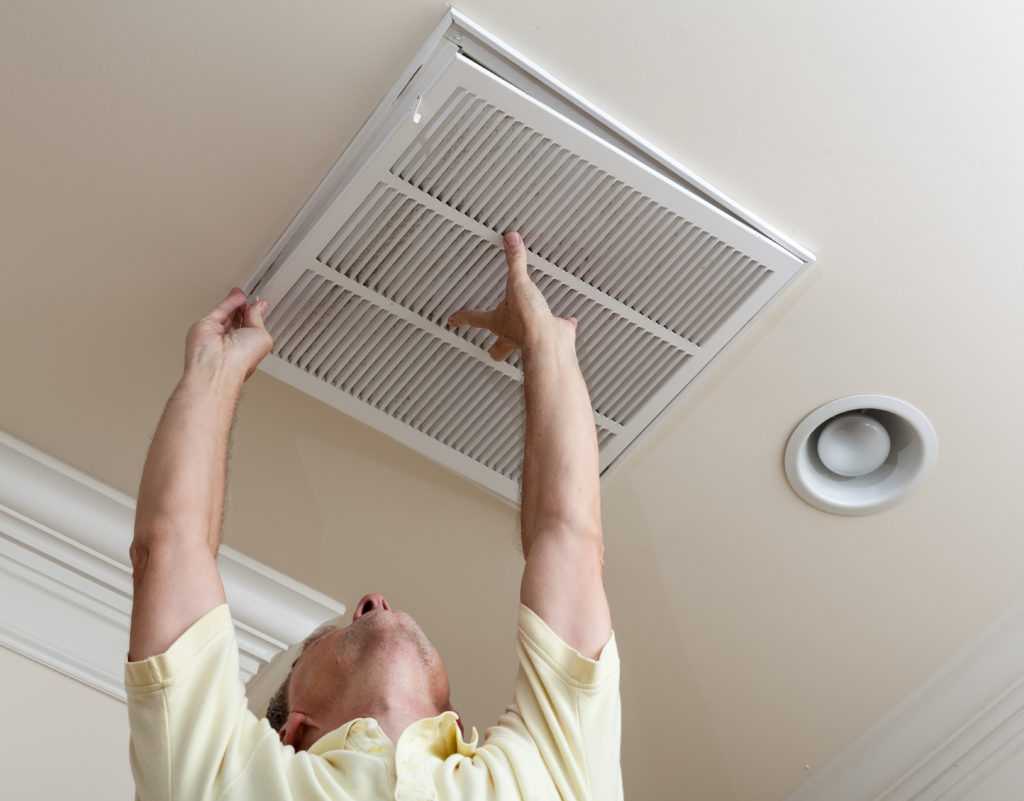When heating and cooling systems have insufficient air flow, it will be important to identify the issue and have it resolved. This can help to save money and ensure that your building maintains a higher level of comfort. Here are a few considerations that can help you to improve air flow through your vents.
Why you Need to Improve Air Flow
Insufficient air flow leads to a broad array of problems. It can cause a building to be difficult to heat or cool and can result in uneven temperatures throughout the building. This causes incredibly uncomfortable environments. In addition, restricted air flow often causes a heating and cooling system to have to work harder. This leads to much higher energy bills and increased wear on the system. This increased wear tends to result in more expensive repair costs over time. Taking the steps to improve the air flow of your building can go a long way toward protecting the HVAC system from this enhanced level of damage.
Problems that Cause Low Pressure
In order to resolve the air flow issues on your property, you will need to identify the underlying cause. Once the problem has been identified, you can take the steps to fix the issue and restore your air flow to an efficient level of pressure. This will make it easier to sufficiently heat and cool your home. Here are some of the common problems that result in low air pressure from your heating and cooling systems.
Overly Efficient Air Filters
It is crucial to ensure that your air filters are at the right level of efficiency to ensure that your HVAC system continues to function effectively. In most situations, more efficiency is better. However, ultra-efficient air filters can easily become clogged as they filter the air. This can substantially reduce the air flow within the building. Consult with our experts to identify the best kind of air filter for your HVAC system. This should maintain the perfect balance between filtering the air of your system and ensuring that it can flow properly through the ductwork.
Dirty or Clogged Air Filters

The air of your heating and cooling system necessarily passes through an air filter. This filter helps to remove dust, debris, and harmful particles and prevent them from circulating through the air of your home. Unfortunately, this also means that an air filter will become dirty or clogged over time. It is important to ensure that the air filter is replaced on a regular basis. Once a filter becomes clogged, it will be far more difficult for air to move through the filter. This often results in reduced or inadequate air flow. Additionally, the replacing of the air filter will help to protect the quality of the air within the building.
Blocked or Crushed Ductwork
Ductwork is intended to help air to travel from the furnace to the vents of the property. When issues occur with the ductwork, it is possible that it will have a detrimental impact on the air pressure. For example, crushed ductwork tends to cause more friction as it attempts to force the air through a smaller opening. This causes the air to slow and lose pressure. In addition, blockages in the ductwork can prevent the air from reaching the vents altogether. If you are experiencing low air pressure, it is crucial to examine your ductwork and ensure that there are no issues.
Ineffectively Planned Ductwork
Effective planning is key in ensuring that ductwork effectively distributes air through the property. This means that ductwork needs to be installed correctly and needs to be the appropriate size. When ductwork is too small, it makes it more difficult for the air to flow effectively through the system. However, there are still issues with the ductwork being too large. This makes it more difficult to efficiently move air through the system. When the ductwork is carefully planned and installed, the heating and cooling system will function far more effectively. This can be incredibly beneficial for the comfort level within a building.
Leaks in the Ducts
Leaks are very common in the ductwork of a property. They allow air to slowly leak from the ductwork, before the air is able to reach its destination. This causes the final pressure to be substantially reduced, which can make it difficult for the system to function effectively. It is crucial to examine your ductwork regularly to locate leaks. These leaks will then need to be sealed in order to ensure that the system is able to function effectively. Regularly checking for leaks can go a long way toward ensuring that your ductwork continues to function as intended.
Vents that are Blocked or Closed
This may seem rather obvious, but it is crucial to ensure that your vents are open and are free of any blockages. Placing furniture in front of or over vents will prevent air from escaping effectively through the vents. Even something as simple as being covered by curtains will impact the capability of the system to allow air flow through the vents. It is important to remove all of these potential blockages from around your vents. You should also thoroughly clean the vents and the surrounding area. This will improve air quality and allow air to flow more freely through the building.
The heating and cooling systems of your home are incredibly important when it comes to protecting your property and maintaining a comfortable environment. If you are getting insufficient air flow through your vents, it is very likely that there is an issue with the ductwork in your property. It can be incredibly beneficial to consult with our experts to identify the issue that is causing problems with your air flow. This can keep your building more comfortable and improve air flow, as well as lower your energy expenses. To learn more about how to improve air flow and protect your HVAC system, contact our experts at Custom Comfort today!



